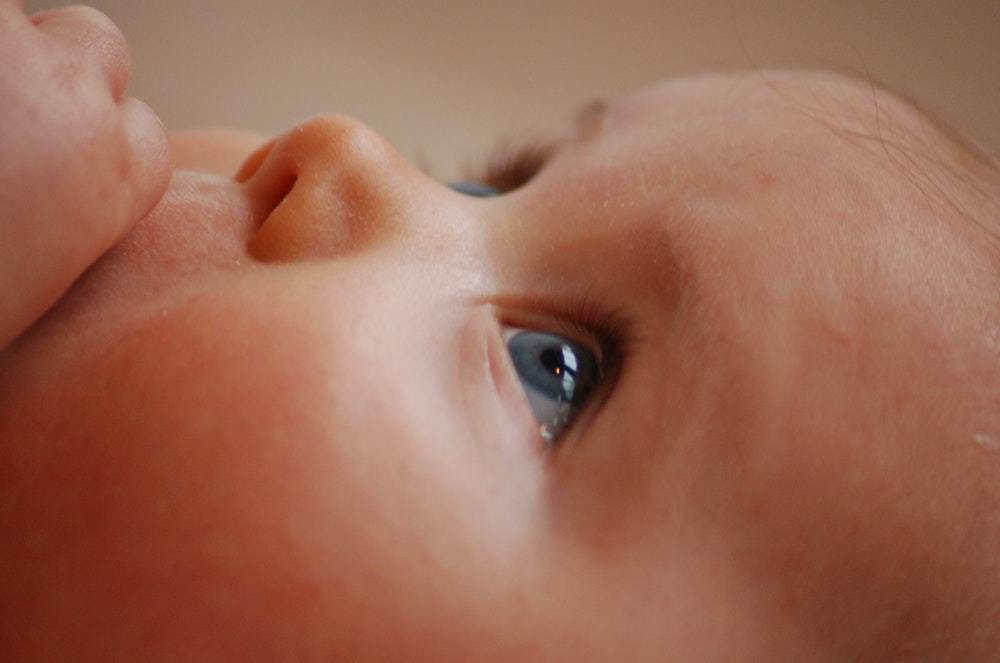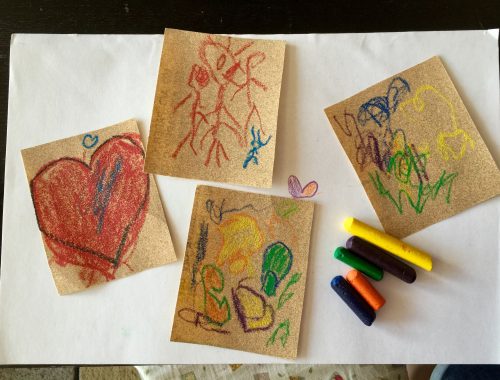The Canadian Optometric Association recommends that all babies have their first eye examination by 6 months of age. Babies don’t need to speak to be examined. Eye doctors are trained observers and have many ways to get the information needed to ensure your baby has healthy eyes and proper vision development.
Eye Development in Babies
Babies begin to move their eyes and react to light before birth. As they get older and more experienced, they learn to use their eyes more effectively to see and understand the world around them. Vision becomes an extension of their touch and taste. Vision is involved with many aspects of a child’s development so problems with eye health or poor vision skills can have a profound effect on a child’s quality of life.
Baby’s First Optometry Appointment
You want the best for your baby so make an appointment to see your optometrist at around your baby’s 6th month unless there are obvious concerns, which should be seen sooner. Schedule the exam at the time of day at which your baby is most alert. Nap time and feeding time are not ideal. You will probably be at the office 30 to 60 minutes so a clean diaper might be needed. Bring a bottle or favourite toy to keep your baby happy. You may also want to leave any other children with a sitter to avoid any distractions during your time with the doctor. A thorough case history will be taken with questions about the pregnancy, birth, baby’s health and developmental milestones, as well as any related family history. Any concerns that you may have will be discussed.
What Happens at the Eye Appointment
The health of your baby’s eyes will be assessed, inside and out. Problems that interfere with the sight of one or both eyes could prevent further visual development, so this is a very important part of any eye exam. There may also be an assessment of the nervous system as it relates to vision. Bright lights may be used to see inside your baby’s eyes and while most fuss about it, the procedures used are entirely safe. If indicated, your doctor may use eyedrops to dilate the pupils and see more of the insides.
By 6 months of age your baby’s eyes should be working together as a team so the alignment and movement of the eyes must be evaluated. Babies will track anything of interest to them, particularly high contrast black and white objects, or sometimes just simple lights. We want to be sure that both eyes are aligned at the same spot, wherever baby is looking.
How Eyes are Assessed
Although your baby can’t read a letter chart, there are a variety of ways that they can show how they see. Your optometrist can measure the power of your baby’s eyes objectively to ensure that both eyes are seeing equally and within expected ranges. Any imbalance or extremes in eye power should be treated to avoid later problems such as amblyopia (lazy eye) or strabismus (eye turns).
Hand-Eye Coordination
There may also be an assessment of your baby’s body and hand-eye coordination. Social and language skills may also be screened. Other specialized testing may be appropriate for infants at high risk for visual problems. These risks may include:
- Premature or low birth weight babies, particularly if oxygen was administered.
- Family history of any eye or systemic disease.
- Difficult births, infection during pregnancy, low APGAR scores.
- Any baby with genetic anomalies such as Down syndrome or motor problems such as cerebral palsy.
- Maternal alcohol or drug use.
Follow-up Appointments
If all is well, the optometrist will want to see you again in a year or so to follow your baby’s progress. If there are concerns, treatment may include: activities to help your baby develop vision, helpful tips to set up baby’s surroundings, eyeglasses or contact lenses to promote normal vision development, and referral to other professionals to assess their areas of expertise. Failure to adequately address vision problems can result in serious problems that have lifelong effects, such as with learning. Because the majority of vision problems are not noticeable by parents, please have your baby checked early and often.
Dr. Darren Sass




[…] but serious vision and eye health conditions don’t always come with obvious signs. A thorough eye examination is the only way to know if a child’s eye health is good and their vision is developing […]